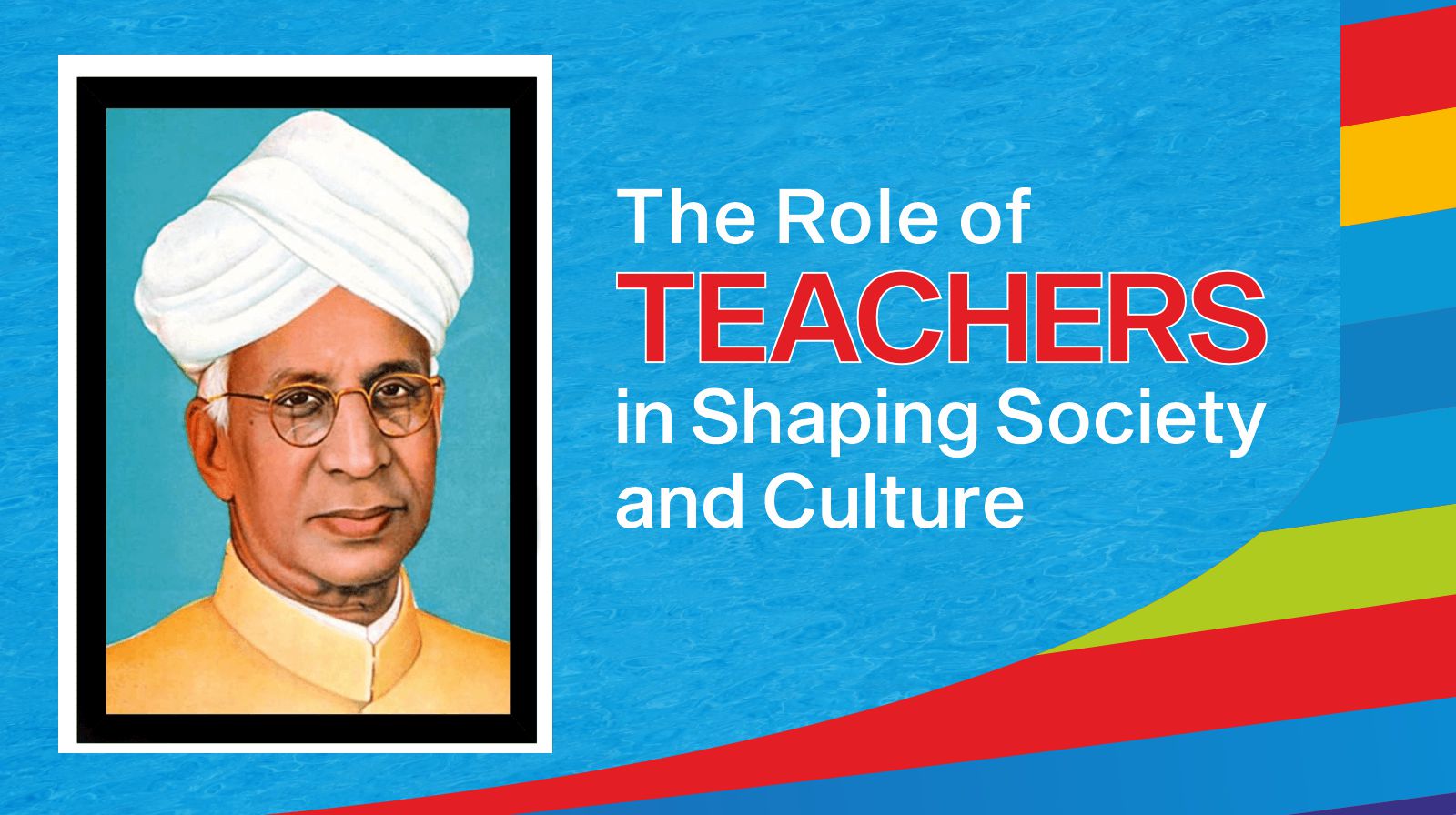Table of Contents
On September 5th, India comes alive with gratitude as we celebrate Teacher’s Day, to honor the heroes who shape our nation’s future. This special day reminds us how teachers influence our lives, beyond textbooks and classrooms. They’re the architects of young minds, they are the guardians of our culture, and often, the nurture as our second parents.
This blog will explain the origins of Teachers Day, highlight how educators support every student’s success, and outline how they help lay the groundwork for our society.
History of Teachers Day in India
In India, Teachers Day is observed on September 5th, to celebrate the birthday of distinguished scholar and philosopher, Dr. Sarvepalli Radhakrishnan former President of India. This practice of celebrating Teacher’s Day began in 1962 when some of Dr. S Radhakrishnan’s students approached him to celebrate his birthday. He displayed modesty and recommended that the day be dedicated to all teachers across the country instead of celebrating his own.
This history perfectly sums up the true spirit of teaching– selflessness and a dedication to elevate others.
Teachers as Catalysts for Cognitive Growth
Teachers are recognized as heroes who ignite the curiosity in young students. They not only act as a medium to impart knowledge but also inspire a love for lifetime learning.
Let’s understand how teachers act as catalysts for intellectual growth through the example of renowned Indian educator, author, and philanthropist, Mrs. Sudha Murty. Before she became an author and philanthropist, she was a computer science professor at Christ University, Bangalore. She always encouraged their students to apply the knowledge to real-world problems and think critically.
Here are various strategies that teachers employ to promote intellectual growth in students:
1. Teachers prepare curious minds by developing an environment where students feel comfortable asking questions.
2. Teachers help students develop analytical skills through debates, case studies, and problem-solving exercises.
3. By recognizing each student’s grasping power, Teachers always customize their approach to ensemble diverse learning styles.
4. Teachers develop creative thinking in students by including arts, projects, and open-ended assignments.
Beyond Textbooks- How Teachers Build Character and Values
Teachers play a vital role in inculcating the values and building character. Other than family, they are often the first adults that children interact with extensively, making their impact profound.
Let’s consider another story of the Global Teacher Prize 2020 winner, Mr. Ranjitsinh Disale, to understand much better how teachers go beyond academics. Being a teacher at a village school in Maharashtra, Mr. Ranjitsinh goes beyond textbooks to address crucial social issues. He showcased how education can bring societal change when he tackled child marriages by counseling parents and students.
Teachers shape character in several important ways:
- By modeling integrity and ethics, as students often mirror their teachers’ behavior.
- Through group activities and community service projects that cultivate understanding and compassion.
- By teaching communication skills and conflict resolution, equipping students with valuable life skills.
- Preparing students for a globalized world by creating inclusive classrooms that celebrate diversity.
Teachers Build Cultures as Cultural Ambassadors
In this interconnected world, teachers serve as bridges between cultures. They encourage global appreciation and admiration for different traditions by introducing students to different perspectives.
India’s first female IPS officer Dr. Kiran Bedi, often praises her school teachers for broadening her horizons. She recalls how her geography teacher introduced the world into their classroom through artifacts and stories, sparking her interest in various cultures.
Teachers promote cultural understanding in students through:
- Exposing students to stories from various cultures helping to broaden their worldview.
- Organizing events that celebrate diverse festivals, promotes respect for different traditions.
- Teaching foreign languages opens doors for students to new cultures and opportunities.
- Arranging student exchange programs or virtual exchanges with peers from other countries.
Teachers are Mentors and Guides for Students
Teachers are the guides and mentors for the students guiding them towards their future paths. Their influence goes beyond their classroom, helping them in making career choices and life decisions.
Here is another real-life example of how teachers guide students is of Dr. APJ Abdul Kalam, India’s “Missile Man” and former President. He often spoke during his interviews and speeches about how his school teacher, Iyadurai Solomon, inspired his love for science and motivated him to pursue his dreams despite financial constraints.
Teachers are guides and mentors for students as they-
1. Teachers help students recognize their talents and potential.
2. Many teachers offer proper career guidance to students in various career paths and requirements.
3. Teachers provide emotional support to the students and act as mentors, guiding students to handle personal challenges.
4. Teachers help develop leadership skills in students through government and group projects.
Final Words
As we celebrate Teachers Day, let’s remember that teaching is more than just a profession – it’s a calling. Teachers are the architects for not only students’ future but of our nation at large as they are involved in shaping minds, hearts, and societies.
So, let’s express our gratitude this teacher’s day. Share a memory with a teacher who made a difference in your life. Reach out to thank them. After all, in the words of author William Arthur Ward, “The mediocre teacher tells. The good teacher explains. The superior teacher demonstrates. The great teacher inspires.”
Article written by
Blog Categories
- 1
- 3
- 1
- 1
- 17
- 8
- 16
- 1
- 1
- 1
- 1
- 1
- 1
- 2
- 1
- 1
- 5



